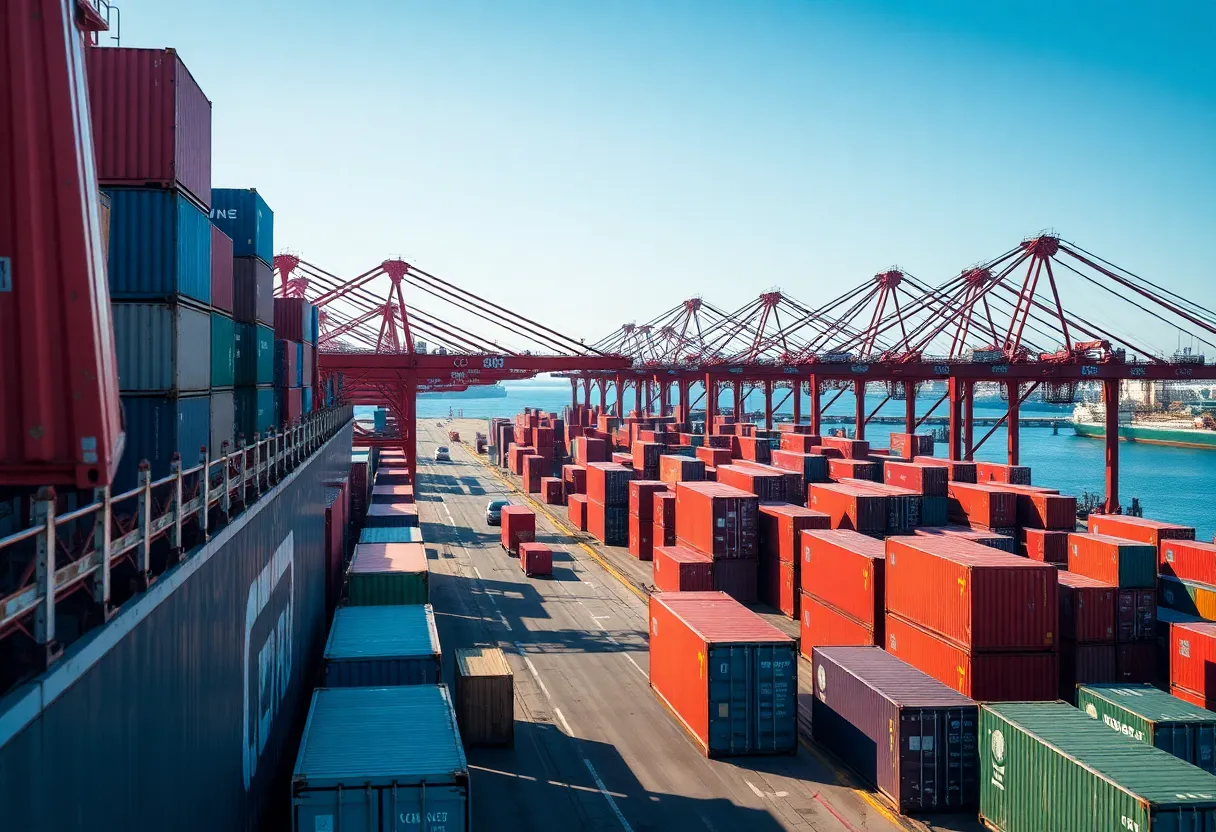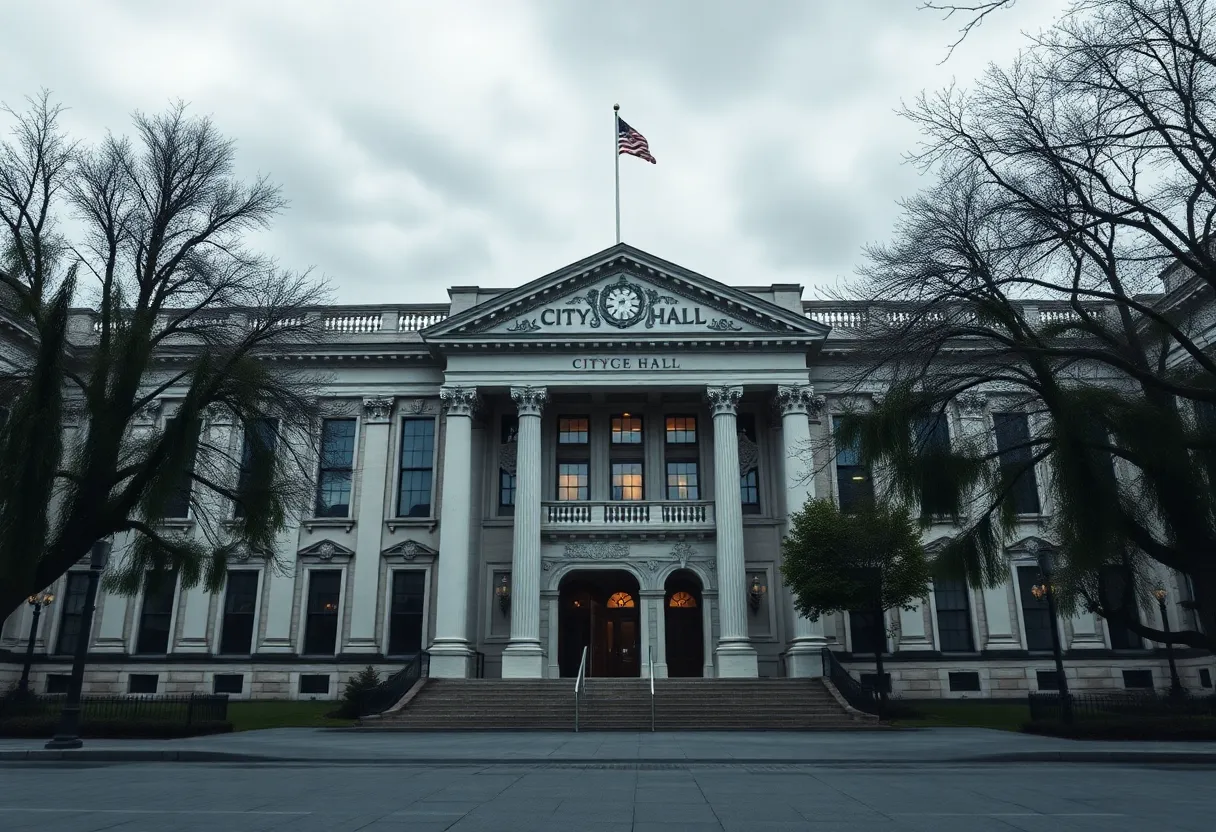News Summary
California is facing significant economic challenges as the effects of President Trump’s trade war become evident. With tariffs soaring to 145% on Chinese imports, local manufacturers and retailers brace for a sharp decline in imports, leading to layoffs and impacting various sectors. The transportation and tourist industries are particularly vulnerable, with decreasing travel and job insecurities. Tensions rise as trade interests collide, affecting everything from property markets to electric vehicle costs. The ongoing uncertainty highlights the broader implications for California’s economy and its relationship with international trade.
California businesses are bracing for significant economic challenges as the effects of President Trump’s trade war begin to unfold. With a substantial increase in tariffs of 145% on goods imported from China, American manufacturers and retailers are expecting a sharp decline in imports starting this week. This expected downturn is compounded by the cancellation of dozens of ships scheduled to arrive at West Coast ports, which is impacting various jobs related to dock work and trucking.
The CEO of the Los Angeles County Economic Development Corporation (LAEDC), Stephen Cheung, reports that layoffs are already occurring within his organization due to budget cuts. Cheung has expressed concerns that the economic turmoil in Los Angeles will have broader implications, ultimately affecting the national economy. Certain sectors, such as transportation and energy storage—particularly those reliant on lithium batteries—are particularly vulnerable to these trade-related issues.
The cost of electric vehicles, a significant portion of which is driven by battery prices, is anticipated to rise dramatically due to the tariff complications. Import prices for goods from China have surged to 2.5 times what they were just a month ago, making these imports less justifiable for U.S. companies. The Trump administration has urged businesses to remain patient amidst the ongoing disruptions; however, there has been limited communication from the administration to concerned organizations.
Within this environment, tensions are rising between California interests and national trade groups. For instance, the California Building Industry Association is seeking lumber supplies from British Columbia for rebuilding after recent wildfires, while the U.S. Lumber Coalition is advocating for new tariffs on Canadian lumber, claiming it undercuts U.S. pricing. Meanwhile, California vineyards had hoped tariffs on European wines could provide a competitive edge, but the retaliatory actions from Canada due to existing tariffs are harming Californian wineries.
The tourist industry in Los Angeles is also feeling the heat, with travel from Canada decreasing significantly due to the escalating trade war. A plan to raise wages for airport and hotel workers to $30 per hour by 2028 is facing delays as business leaders warn of potential job losses and industry closures. Notably, Los Angeles International Airport (LAX) has already recorded a significant decline in passenger traffic. The city’s tourism sector is increasingly anxious about the adverse effects of the minimum wage increase amidst the current economic climate.
Recent data indicates a decrease of approximately 1% in visitors to Los Angeles, marking the first decline since the pandemic, which can be attributed to a mix of high-profile factors including tariffs and a strong U.S. dollar. Financial concerns are mounting for concessionaires at LAX, as reduced business and economic strain have led to uncertainties in financing.
The property market in California is also being affected, with some Canadian travelers deciding to sell properties and cancel vacations due to the unstable economic environment precipitated by U.S. tariffs. The California government has not engaged in high-level conversations with Beijing in response to the trade tensions but emphasizes that the state remains open for trade with China.
The Port of Long Beach is bracing for a business reduction of 35-40% as a result of existing tariff levels. The uncertainty surrounding tariffs is profoundly impacting both importers and exporters, creating significant economic implications for the region. As local businesses navigate these turbulent waters, it’s clear that the ripple effects of the trade war will continue to shape the economic landscape in California and beyond.
Deeper Dive: News & Info About This Topic
- Politico: California Ports and Trump’s Tariffs
- Wikipedia: Trade War
- Los Angeles Times: L.A. City Council and Trade War Impact
- Google Search: California Tariffs
- ABC7: Impact of Trump’s Tariffs on Port of Long Beach
- Encyclopedia Britannica: Economic Sanction
- San Francisco Chronicle: Trump Tariffs and Business Impacts
- Google News: California Trade War

Author: Anaheim Staff Writer
The Anaheim Staff Writer represents the experienced team at HEREAnaheim.com, your go-to source for actionable local news and information in Anaheim, Orange County, and beyond. Specializing in "news you can use," we cover essential topics like product reviews for personal and business needs, local business directories, politics, real estate trends, neighborhood insights, and state news affecting the area—with deep expertise drawn from years of dedicated reporting and strong community input, including local press releases and business updates. We deliver top reporting on high-value events such as major conventions at the Anaheim Convention Center, including NAMM and VidCon, exciting games at Angel Stadium and Honda Center, and developments at Disneyland Resort Our coverage extends to key organizations like the Anaheim Chamber of Commerce and Visit Anaheim, plus leading businesses in hospitality, entertainment, and innovation that power the local economy As part of the broader HERE network, including HERECostaMesa.com, HEREHuntingtonBeach.com, HERESantaAna.com, and HERELosAngeles.com, we provide comprehensive, credible insights into Southern California's dynamic landscape.




